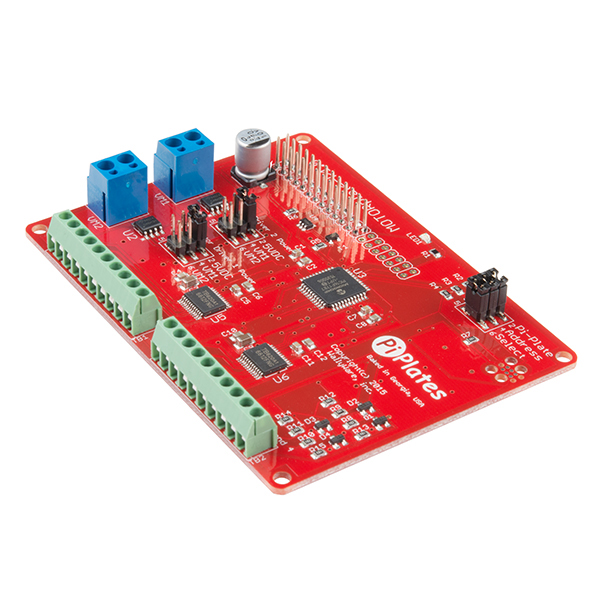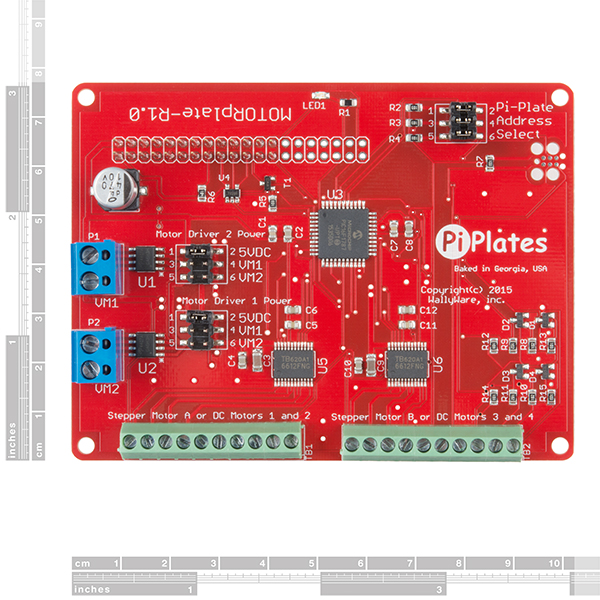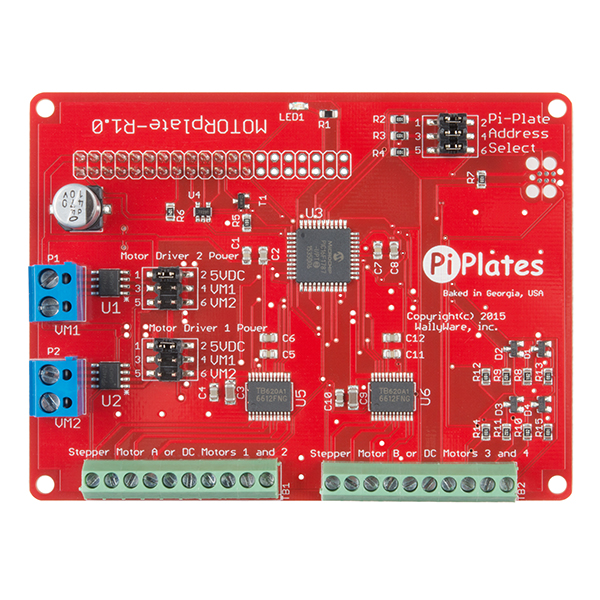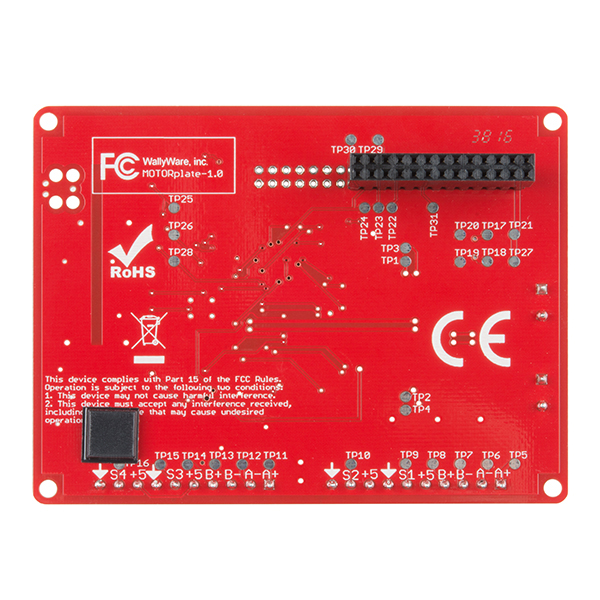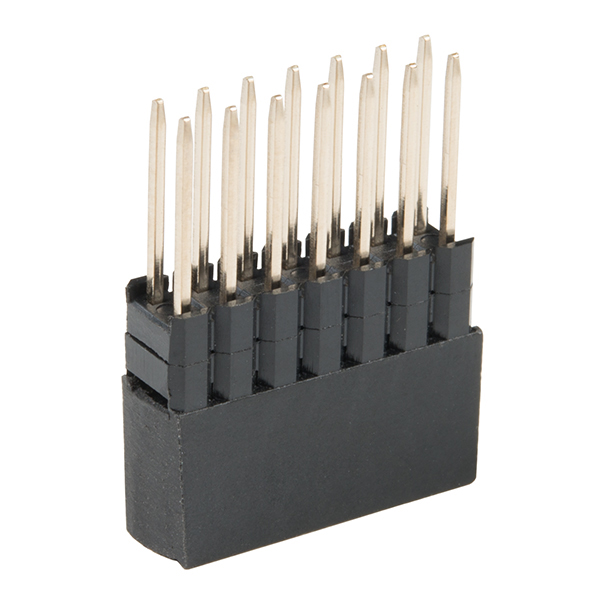MOTORplate
The MOTORplate from Pi-Plates brings a suite of professional motion control features to your Raspberry Pi. These plates can each control a combination of two stepper motors, four DC motors or one stepper and two DC motors. An onboard microprocessor does all the hard work including controlling acceleration trajectories and microstepping. By offloading these functions, your Raspberry Pi is free to perform other tasks. Use this board to control a precision XY stage driven by stepper motors. Or, drive the treads of your killer robot.
Pi-Plates are a family of stackable and interchangeable add-on circuit boards that allow you to interact with the outside world using your Raspberry Pi. Every Pi-Plate is designed to provide a robust set of features at minimal cost while using the fewest pins possible on the RPi header. Pi-Plates are mechanically and electrically compatible with all revisions of the Raspberry Pi with 40 pin headers (including the Pi 3 Model B and Pi Zero) and are designed to satisfy the needs of hobbyists, experimenters and professionals.
- Can drive 2 stepper motors or 4 DC motors or a combination of the two
- Output currents as high as 1.2 amps (avg) and 3.2 amps (peak)
- Motor driving MOS transistors ensure cool and efficient operation
- Auxiliary power inputs with selectors and reverse-voltage protection allow each motor controller chip to be powered by either the:
- The Raspberry Pi 5VDC supply
- Dedicated power input (15V MAX)
- Dedicated onboard processor
- Calculates and provides real-time acceleration trajectories
- Only needs two dedicated RPI pins (GPIO 25 and CE1)
- Compatible with all versions of Raspberry Pi
- Design allows up to eight MOTORplate boards to be stacked together for eight times the drive capability: 16 stepper motors or 32 DC motors!
- Uses less than 10mA of DC current during standby2
- All inputs ESD and overvoltage protected
- +5 and ground available on terminal blocks for powering hall effect sensors, optoisolators and limit switches
- Includes programmable LED
- Compatible with ServoBlaster
MOTORplate Product Help and Resources
Core Skill: Robotics
This skill concerns mechanical and robotics knowledge. You may need to know how mechanical parts interact, how motors work, or how to use motor drivers and controllers.
Skill Level: Rookie - You will be required to know some basics about motors, basic motor drivers and how simple robotic motion can be accomplished.
See all skill levels
Core Skill: DIY
Whether it's for assembling a kit, hacking an enclosure, or creating your own parts; the DIY skill is all about knowing how to use tools and the techniques associated with them.
Skill Level: Noob - Basic assembly is required. You may need to provide your own basic tools like a screwdriver, hammer or scissors. Power tools or custom parts are not required. Instructions will be included and easy to follow. Sewing may be required, but only with included patterns.
See all skill levels
Core Skill: Programming
If a board needs code or communicates somehow, you're going to need to know how to program or interface with it. The programming skill is all about communication and code.
Skill Level: Competent - The toolchain for programming is a bit more complex and will examples may not be explicitly provided for you. You will be required to have a fundamental knowledge of programming and be required to provide your own code. You may need to modify existing libraries or code to work with your specific hardware. Sensor and hardware interfaces will be SPI or I2C.
See all skill levels
Core Skill: Electrical Prototyping
If it requires power, you need to know how much, what all the pins do, and how to hook it up. You may need to reference datasheets, schematics, and know the ins and outs of electronics.
Skill Level: Rookie - You may be required to know a bit more about the component, such as orientation, or how to hook it up, in addition to power requirements. You will need to understand polarized components.
See all skill levels
Comments
Looking for answers to technical questions?
We welcome your comments and suggestions below. However, if you are looking for solutions to technical questions please see our Technical Assistance page.
Customer Reviews
No reviews yet.

